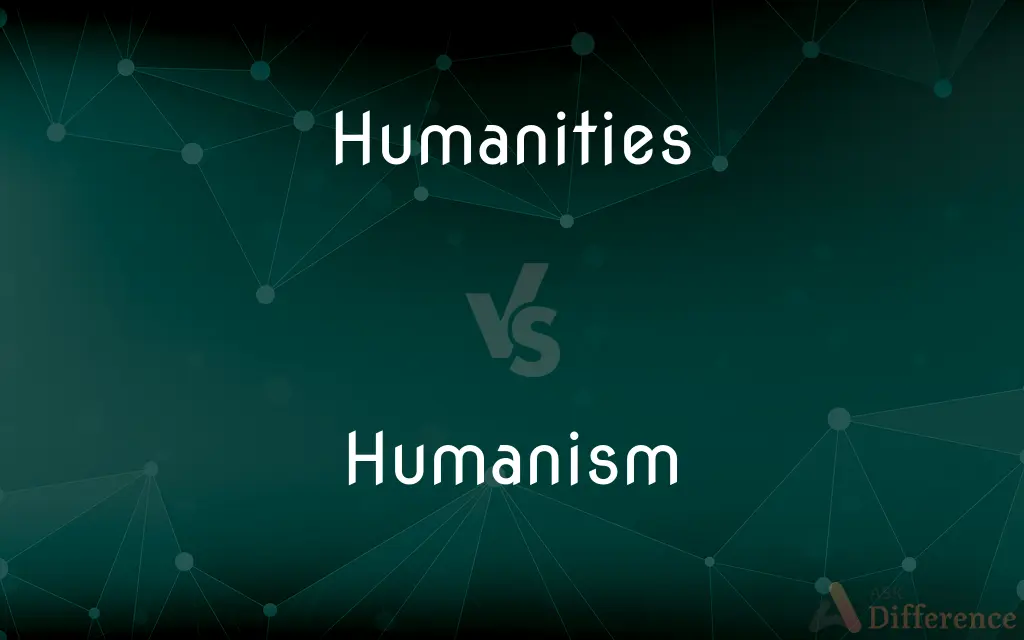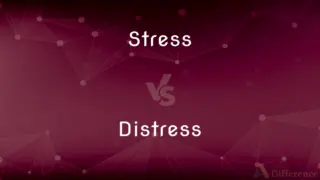Humanities vs. Humanism — What's the Difference?

Difference Between Humanities and Humanism
ADVERTISEMENT
Compare with Definitions
Humanities
Humanities are academic disciplines that study aspects of human society and culture. In the Renaissance, the term contrasted with divinity and referred to what is now called classics, the main area of secular study in universities at the time.
Humanism
Humanism is a philosophical stance that emphasizes the potential and agency of human beings, individually and socially. It considers human beings as the starting point for serious moral and philosophical inquiry.
Humanities
Humans considered as a group; the human race.
Humanism
A system of thought that focuses on humans and their values, capacities, and worth.
Humanities
The condition or quality of being human.
ADVERTISEMENT
Humanism
Humanism A cultural and intellectual movement of the Renaissance that emphasized human potential to attain excellence and promoted direct study of the literature, art, and civilization of classical Greece and Rome.
Humanities
The quality of being humane; benevolence.
Humanism
The study of the humanities; learning in the liberal arts.
Humanities
A humane characteristic, attribute, or act.
Humanism
Secular humanism.
Humanities
The languages and literatures of ancient Greece and Rome; the classics.
Humanism
Concern with the interests, needs, and welfare of humans
"the newest flower on the vine of corporate humanism" (Savvy).
Humanities
Those branches of knowledge, such as philosophy, literature, and art, that are concerned with human thought and culture.
Humanism
The study of the humanities or the liberal arts; literary (especially classical) scholarship.
Humanities
Plural of humanity
Humanism
Specifically, a cultural and intellectual movement in 14th-16th century Europe characterised by attention to classical culture and a promotion of vernacular texts, notably during the Renaissance.
Humanities
(obsolete) classical studies: the study of Ancient Greek and Latin, their literature, etc.
Humanism
An ethical system that centers on humans and their values, needs, interests, abilities, dignity and freedom; especially used for a secular one which rejects theistic religion and superstition.
Humanities
The study of language, literature, the arts, history, and philosophy, sometimes including religion.
Humanism
Humanitarianism, philanthropy.
Humanities
Studies intended to provide general knowledge and intellectual skills (rather than occupational or professional skills);
The college of arts and sciences
Humanism
Human nature or disposition; humanity.
[She] looked almost like a being who had rejected with indifference the attitude of sex for the loftier quality of abstract humanism.
Humanism
The study of the humanities; polite learning.
Humanism
A doctrine or ethical point of view that emphasizes the dignity and worth of individual people, rejects claims of supernatural influences on humans, and stresses the need for people to achieve improvement of society and self-fulfillment through reason and to develop human-oriented ethical values without theism.
Humanism
The doctrine that people's duty is to promote human welfare
Humanism
The doctrine emphasizing a person's capacity for self-realization through reason; rejects religion and the supernatural
Humanism
The cultural movement of the Renaissance; based on classical studies
Share Your Discovery

Previous Comparison
Nectarine vs. Tangerine
Next Comparison
Stress vs. Distress













































